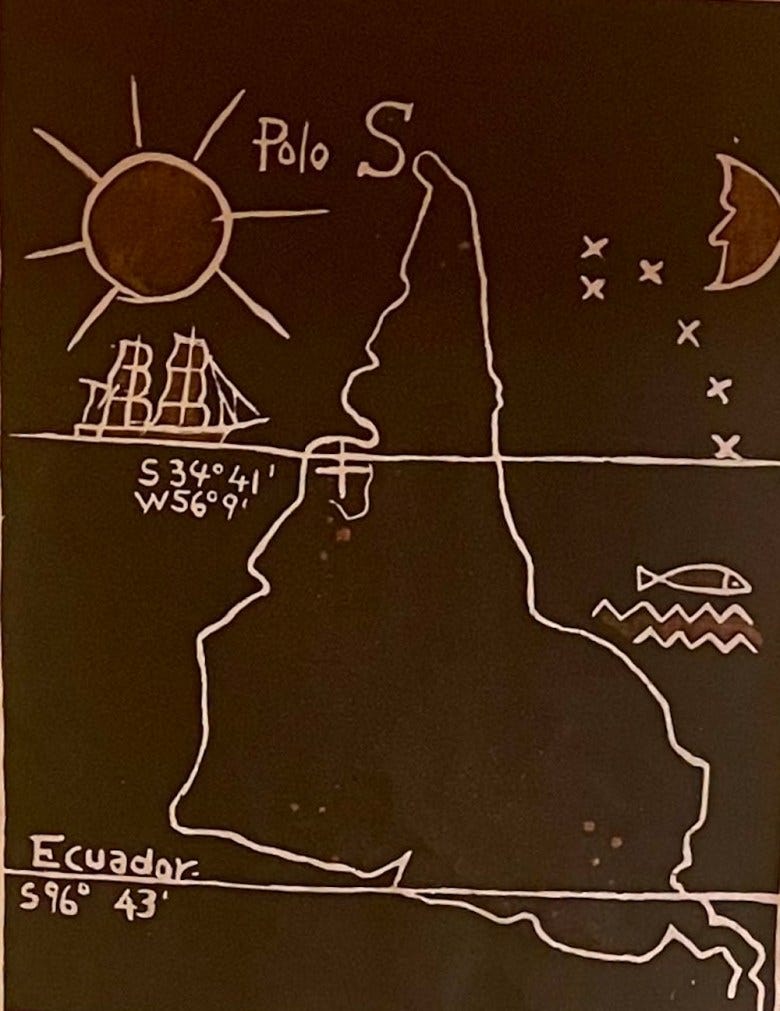
I remember the dictator’s plane taking off at 3 a.m., as fireworks lit up the valley of Caracas and tracer rounds cut through the sky. Mobs were already coming up the street toward our upper-class neighborhood, preparing to ransack the mansions uphill. It was the late 1950s when Venezuela’s Marcos Pérez Jiménez fled first to the Dominican Republic, settling in Miami and eventually in Spain.
Tragically, the governments that followed proved just as dictatorial, alongside the rise of Fidel Castro in Cuba.
Latin America is paradoxical in U.S. foreign policy: consistently exploited yet largely sidelined, as attention remains fixed on Europe, Asia, and the Middle East. The region has endured externally backed coups and dictatorships, the relentless extraction of oil and natural resources—often to meet U.S. demand—and now faces pressures like restrictive tariffs and forced remigration.
Yet, for all its strongmen and uprisings, Latin America has long resisted authoritarianism. In 1824, El Libertador Simón Bolívar convened a congress in Panama City, inviting delegates from the region’s new republics and observers from the United States. He proposed a federation of “liberal nations”—possibly the first recorded use of the term—bound by laws that would abolish slavery, guarantee equal rights, and render “differences of origin and color” politically irrelevant. No nation, he insisted, would dominate or be dominated.
The plan failed. But Bolívar’s vision helped shape global thinking. Latin American jurists contributed to the foundations of international norms—from non-intervention to human rights—more than many in the U.S. care to admit. Figures like Chile’s Alejandro Álvarez, a founder of modern international law, left a legacy still felt today. Institutions like the Inter-American Court of Human Rights continue to press for accountability—sometimes more consistently than the U.S., which often resists the very standards it once helped define.
In the 1980s, after years of military rule, the region saw its most determined push from below for democratic government. Voters returned to the polls. Grassroots organizers—trade unionists, feminists, and Indigenous activists—gained influence. Leaders from these movements, including peasant organizers and liberation theologians, began building institutions rooted in equality and rights.
More recently, military leaders, judges, elected officials, and ordinary citizens united to stop an attempted coup on January 8, 2023, in Brazil. Though deep economic challenges temper the democratic mandate, it is a bulwark against authoritarian threats.
With exceptions—notably, Venezuela and right-leaning populists like Argentina’s Javier Milei and El Salvador’s Nayib Bukele—Latin America has kept full-scale authoritarianism at bay. Basic freedoms, though strained, remain intact. As one columnist observed, in recent years, “no region has had as much experience beating back fascists” as Latin America.
Today, about three-quarters of Latin Americans live under social-democratic governments. These democracies have expanded labor protections, healthcare, education, and civil liberties, including women’s and LGBT rights. Argentina, Mexico, and Colombia have recently decriminalized abortion. Most countries now recognize same-sex unions. Though despotic vestiges remain, the region’s ongoing struggle for equal rights underscores its democratic vitality.
Despite its reputation for instability, Latin America has become a proving ground for democratic resilience. It offers timely lessons for U.S. democracy. Citizens across the region have shown how mass mobilization can drive reform without illusions of exceptionalism and despite real risks of reprisal. Peaceful transfers of power, legal accountability, and public reckoning with the past have emerged not from stability but from struggle. Democracy is always an argument—never a done deal, but a refusal of the “doomerism” that sustains the unsustainable.
Neither democracy nor dictatorship can move forward without reckoning with the persistence of their rivalry. Power shifts, but the pattern endures. The day after a revolution, the revolutionary becomes a conservative—defending the victory, suppressing new dissent. As with the French Revolution, liberation can become another form of the despotism it overthrew. But what is likely is not inevitable.
The United States and Latin America shaped each other. That exchange isn’t over. No outcome is certain. What comes next may shape democracy itself—and reawaken hope in our own.
Notes and reading
Simón Bolívar outlined his vision for a federation of “liberal nations” in his invitation to the Congress of Panama and related documents, widely discussed in historical analyses of the Congress and Bolívar's political thought. See, for example, relevant sections in Simón Bolívar: A Life - John Lynch (2006).
“In Defence of Democracy: Fighting Against Extremism”— Title of a speech by Brazil’s President Luiz Inácio Lula da Silva, delivered in New York on October 3, 2024, and released by the Office of the President, Brasília.
America, América: A New History of the New World - Greg Grandin (2025). Historical struggles for social democracy across Latin America might serve as a model for a social-democratic movement of the future.
“Doomerism”—"the savvy know-it-alls ready to pipe in about how they saw all the horrors of today coming years ago and now dismiss any talk of elections in 2026 as a naive distraction from the ineluctable consolidation of authoritarian rule.” - See Hannah Arendt’s lecture, “Personal Responsibility Under Dictatorship” (1964), cited in “The Banality of Complicity,” Liberal Currents (May 5, 2025).
Democracy Playbook 2025: 7 Pillars to Defend Democracy in 2025 and Beyond - Norman Eisen and Jonathan Katz (Brookings Institution, January 2025): Offers strategies for countering democratic backsliding and resisting illiberal and autocratic forces. Available online at the Brookings Institution website.
Spin Dictators: The Changing Face of Tyranny in the 21st Century - Sergei Guriev and Daniel Treisman (2022). Simulating democracy in electoral autocracies. “Fake it to make it.” The appeal that political extremism holds even to those who would seem to be its victims.
Tip-Off #201 - True Comedy
Tip-Off #200 - The drift toward illiberalism




Fascinating, insightful, and hopeful. Great insights on how three-quarters of Latin Americans, those living under social-democratic governments, are faring. Great thoughts also on lessons the United States might learn from their southern neighbors about resisting authoritarianism. It's all presented in the spirit of contingency and discovery. "Democracy is always an argument—never a done deal, but a refusal of the 'doomerism' that sustains the unsustainable." Yes!